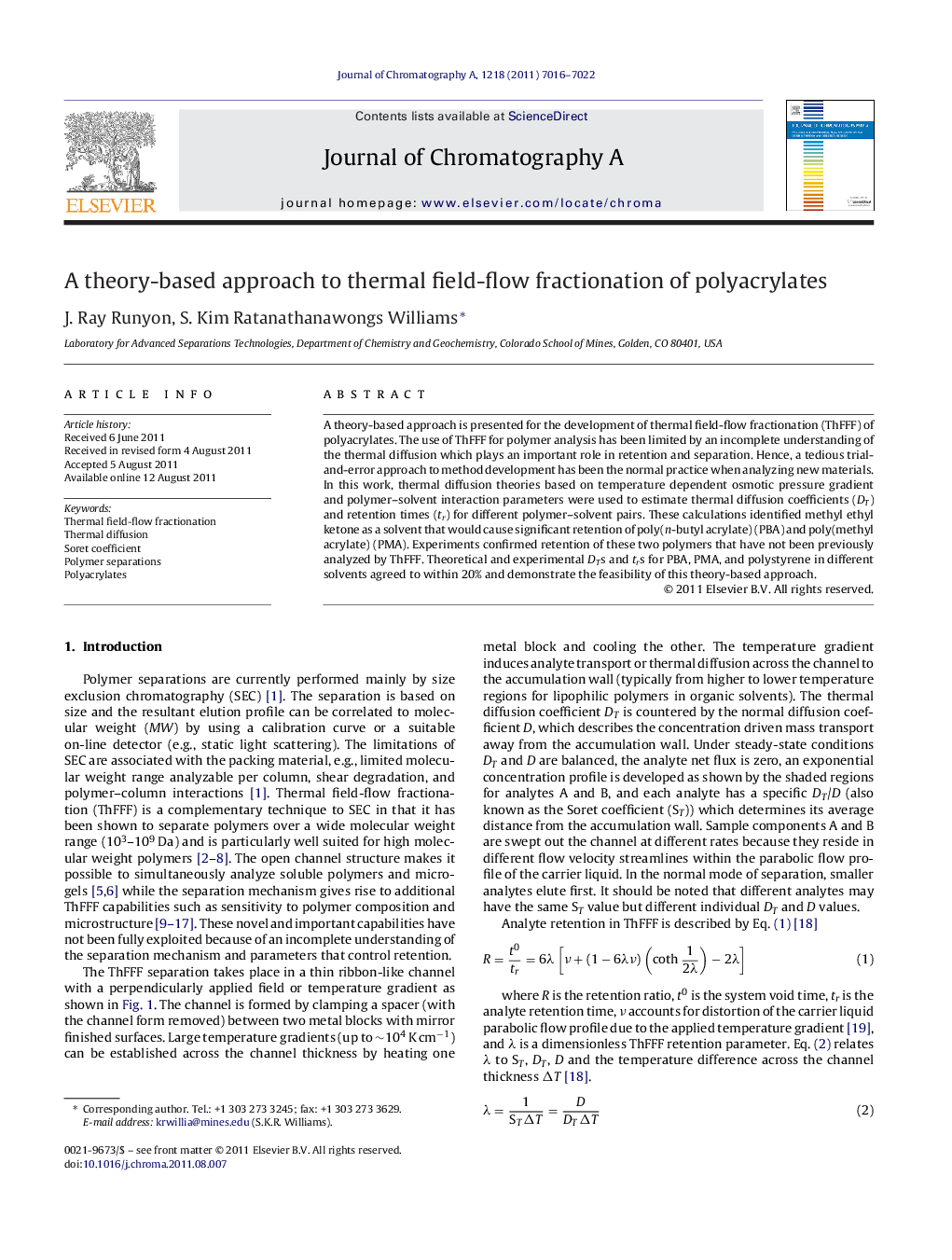| Article ID | Journal | Published Year | Pages | File Type |
|---|---|---|---|---|
| 1201818 | Journal of Chromatography A | 2011 | 7 Pages |
A theory-based approach is presented for the development of thermal field-flow fractionation (ThFFF) of polyacrylates. The use of ThFFF for polymer analysis has been limited by an incomplete understanding of the thermal diffusion which plays an important role in retention and separation. Hence, a tedious trial-and-error approach to method development has been the normal practice when analyzing new materials. In this work, thermal diffusion theories based on temperature dependent osmotic pressure gradient and polymer–solvent interaction parameters were used to estimate thermal diffusion coefficients (DT) and retention times (tr) for different polymer–solvent pairs. These calculations identified methyl ethyl ketone as a solvent that would cause significant retention of poly(n-butyl acrylate) (PBA) and poly(methyl acrylate) (PMA). Experiments confirmed retention of these two polymers that have not been previously analyzed by ThFFF. Theoretical and experimental DTs and trs for PBA, PMA, and polystyrene in different solvents agreed to within 20% and demonstrate the feasibility of this theory-based approach.
